Volvo EX90 review: the premium electric SUV sets a new standard
Volvo’s flagship electric SUV pushes the boundaries and provides a clean and stylish solution

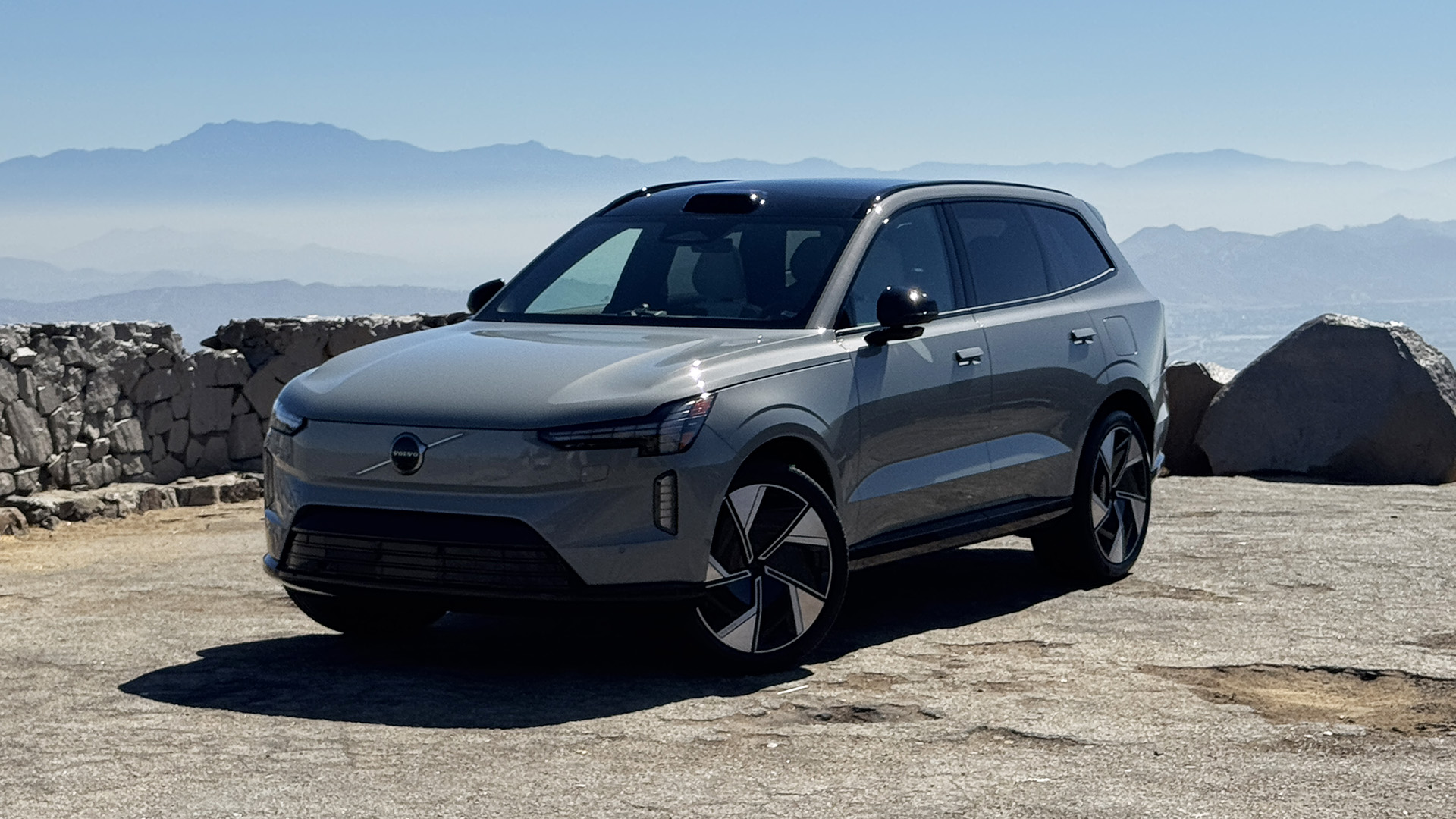
The Volvo EX90 sets out to offer a truly premium electric SUV experience and it doesn’t disappoint. With a beautiful design inside and out, and a wealth of advanced tech and safety features, this shows just how serious Volvo is for its EV models.
-
+
Classy minimalist design
-
+
Great handling
-
+
Loaded with tech
-
+
Incredible audio system
-
-
Some functions hidden in the menus
-
-
Large LiDar bump on roof
-
-
Tiny wing mirrors
Why you can trust T3

The Volvo EX90 is the 3rd generation of the company’s flagship SUV and the first fully electric version. Premium SUVs are a hugely competitive section of the market, particularly in the EV world. But Volvo has proved it can produce stylish and appealing electric cars, with the likes of the EX30 and its parent company Geely, has stunning offerings such as the Polestar 3 and the Lotus Eletre already on sale.
The EX90 shares the same platform as the Polestar 3 but is a very different looking vehicle. While it retains the general look and feel of previous versions, the styling has been massively upgraded, giving this car a modern style both inside and out.
I got the chance to drive the early production models of the EX90 Ultra edition in California ahead of its release. Not only did the car not look out of place among the fleet of supercars cruising Highway 1, but it received regular complements from passersby. Add to that this EV handles incredibly well for a large SUV and you can see why this is such an important release for Volvo and for potential customers.
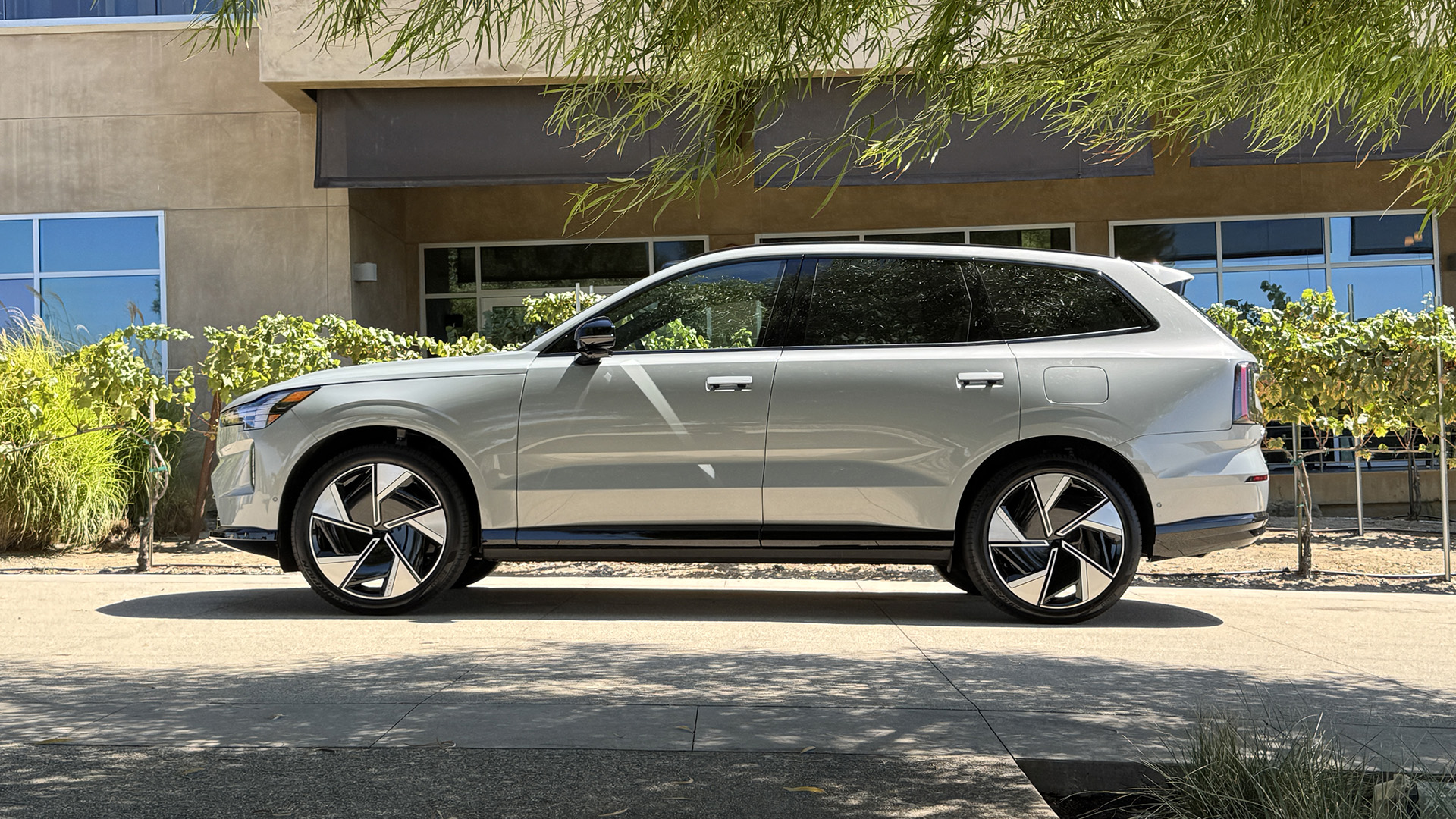
Price and availability
Initially announced back in 2022, production of the EX90 started in the factory in South Carolina in June 2024. First deliveries of the EX90 are expected in October 2024 for the UK market, with the Ultra edition – the highest spec models – coming first. The Ultra Twin Motor model starts from £96,255, while the Ultra Twin Motor Performance starts from £100,555. It was the more powerful Performance Model that I got to drive in the USA.
While this might seem a considerable price for a Volvo SUV, it’s on par with a range of premium electric SUVs. The BMW iX M60 for instance, starts from £124,605, while the Mercedes-Benz EQS SUV starts from £129,470. Within the Geely family, the Polestar 3 dual motor costs £75,900 while the Lotus Electre starts from £89,500 on the road.
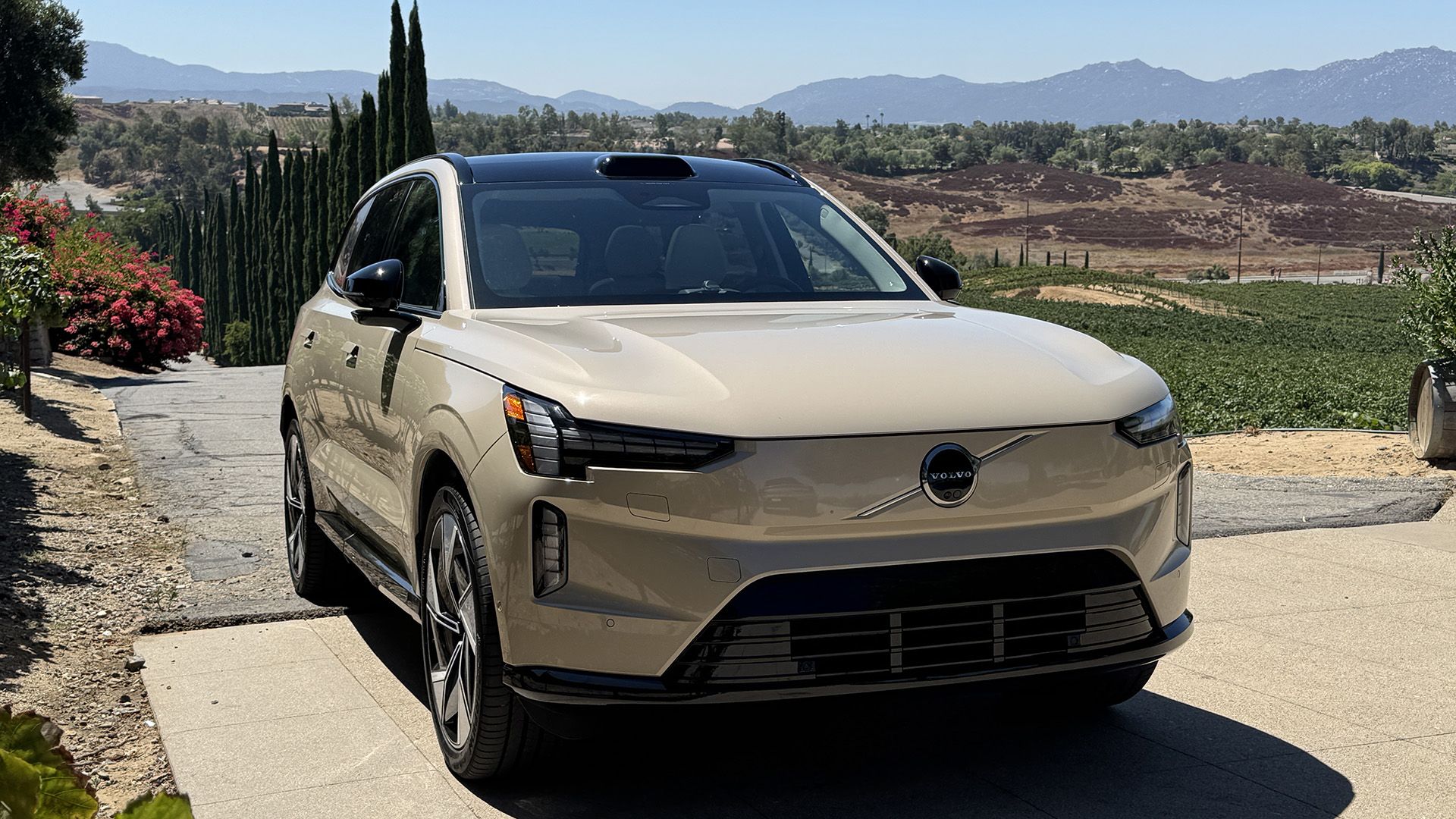
Features and design
While it's easy to see the similarities to the former XC90 model (the new XC90 is similar to the EX90), there has been a significant step up in styling. Gone are the squared off lights and dominant chromed grill. Instead it features a solid body coloured grill with just a hint of that diagonal line and multi-section LED headlights that perform a light show when the car is unlocked.
There are a host of new colours for this third generation model including the standard vapour grey, which has a slightly blue tint to the grey finish, sand dune and a mulberry red, which looks almost brown in some light.
Get all the latest news, reviews, deals and buying guides on gorgeous tech, home and active products from the T3 experts
At the rear, the lights create an extended C-shape but also extend up the side of the rear window. The profile of the car is clean too, with the impression of a pillarless design through the back of the windows and pillars. It loses the chrome of past Volvo SUVs and brings a more aerodynamic shape. All that sat on 22-inch wheels and low profile summer tyres.
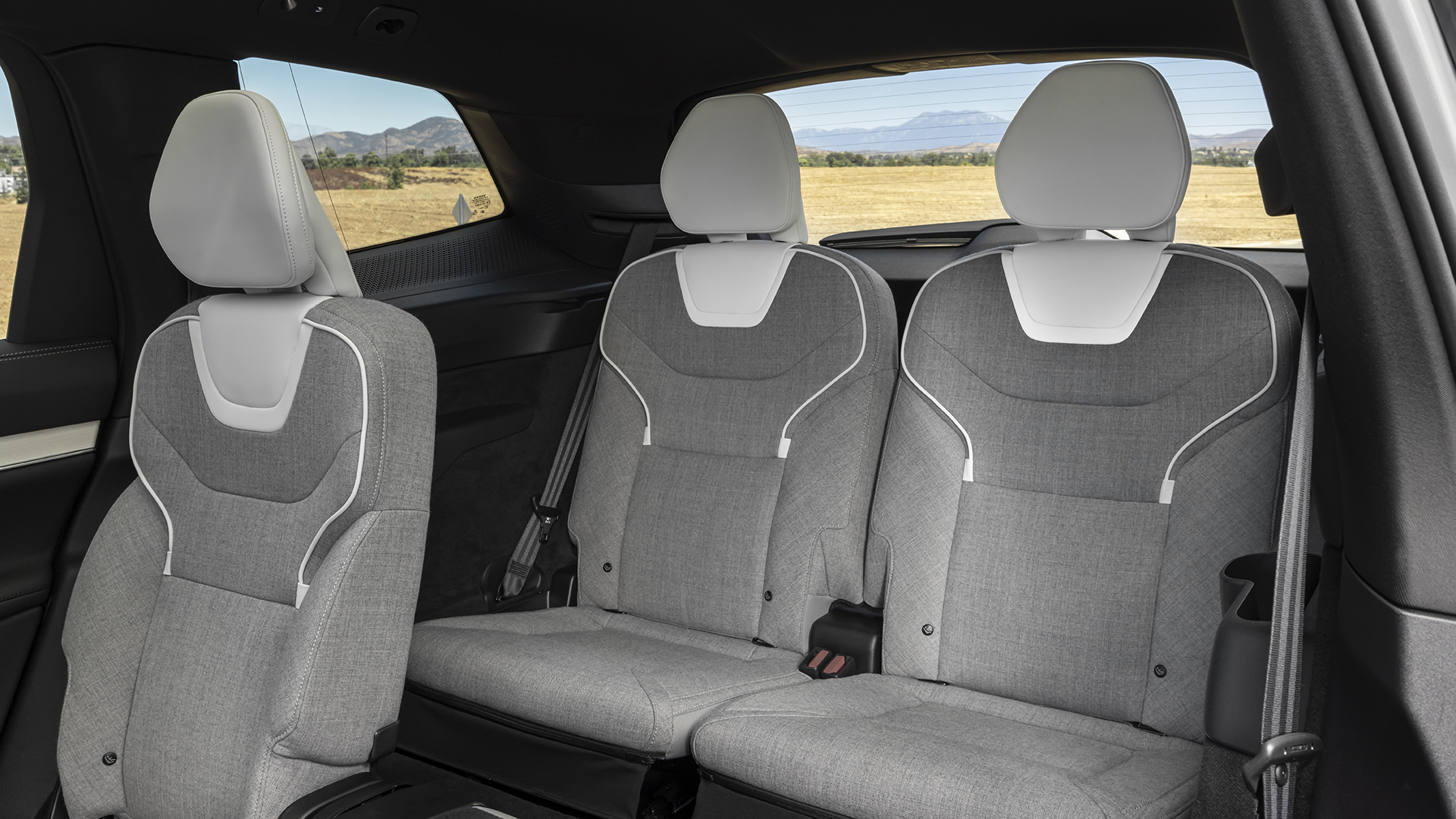
One part you can’t miss is the large bump above the windscreen which houses some of the LiDar sensors for the car. This appears more prominent than on some models – not least the pop-up option on the Lotus models. It does look at little like a placement for a Taxi symbol from some angles, but it’s clever technology that brings a lot to the car.
Inside the car, the design is really clean and minimalistic too. While the wool blend grey interior option is more subdued and sensible, the lighter grey and white (Dawn) leather interior gives a really modern and edgier design.
The steering wheel feels quite small and delicate for a large SUV – perhaps more suited to a smaller car – however it does have its benefits when it comes to handling. The indicator stick on the side of the wheel returns to its central position when pressed up and down, rather than clicking in place. I find this can cause you to accidentally signal the other way when turning off the signal, but is otherwise pleasant to use.
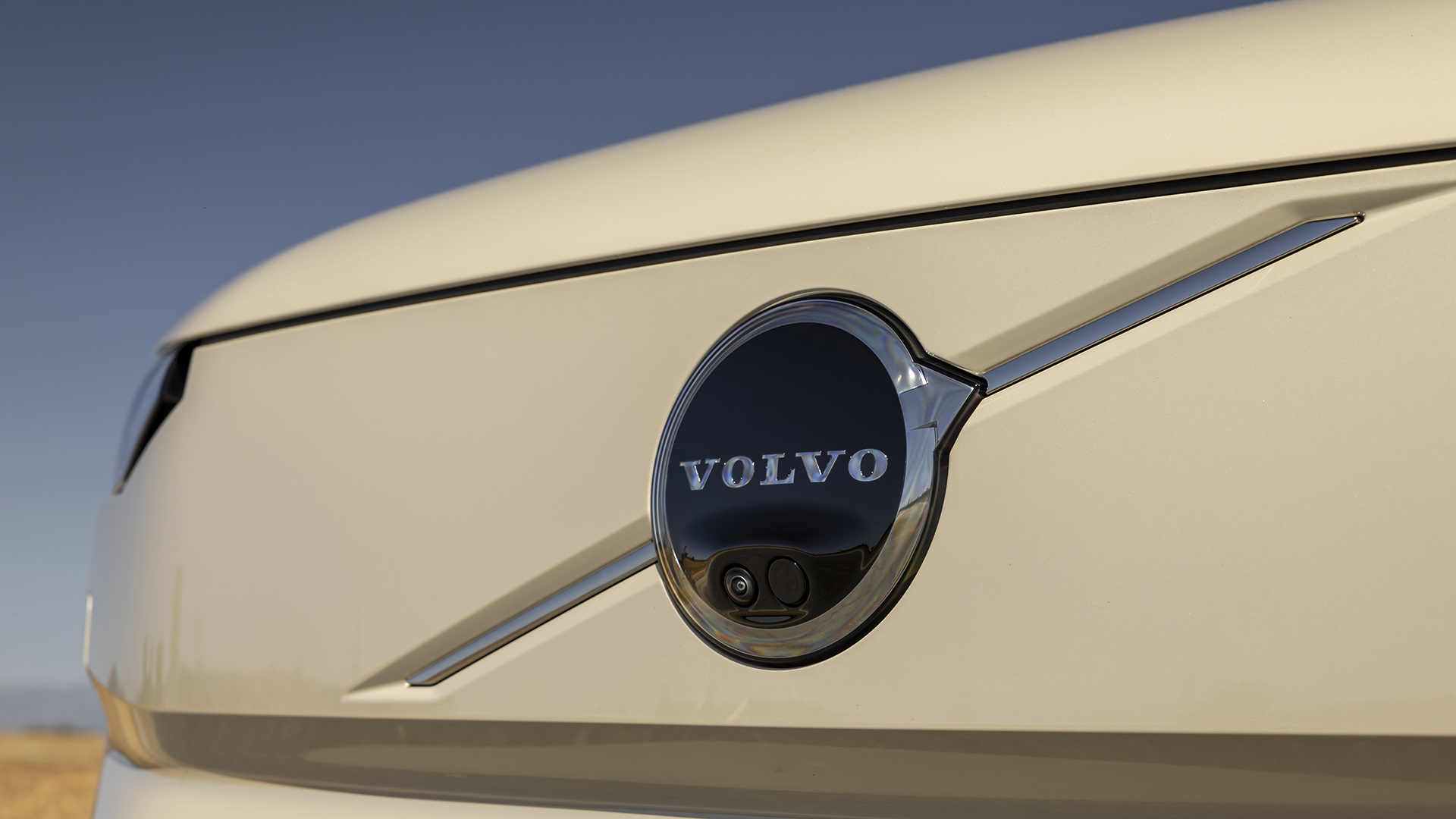
The wing mirrors on the EX90 are surprisingly small too, with a bezel free design that reduces the size even further. On this size of car though, they do feel slightly undersized, making it more difficult to clearly see what’s behind you. I’m a big fan of oversized wing mirrors, particularly on SUVs.
Behind the steering wheel is an 8-inch driver display for the main driving dynamics, while in the centre is a generous 14.5-inch vertical touchscreen, which controls almost all of the vehicle settings – down to the wing mirrors and climate controls. There’s also a head-up display, which includes navigation and road information, so you can keep your eyes firmly on the road at all times.
This is a seven seater car, so there’s a second row of rear seats in the back, which automatically fold down (and up again) using a button in the boot, or just inside the rear doors. This makes the SUV completely flexible, whether you have more people or more luggage. With all seven seats up you have around 365 litres of boot storage, but with just five seats this extends to 1,010 – or 1,915 litres if you put all the rear seats flat.
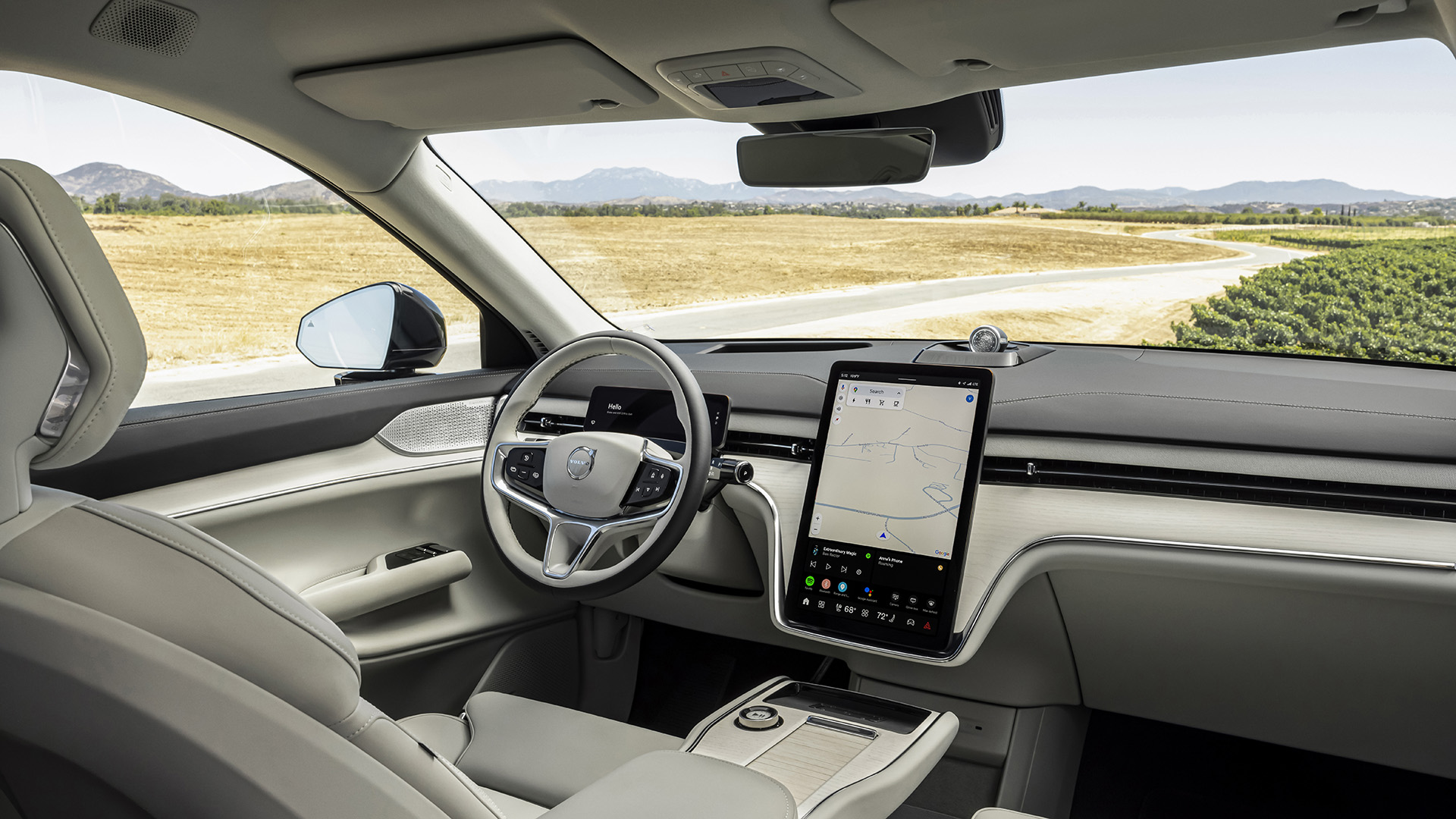
Technology
The technology on board the EX90 is what turns this large SUV into something a little bit special. The system runs using Qualcomm’s Snapdragon Cockpit platform and Nvidia drive AI core systems. It’s what you’d expect from a high end computer and it means an incredibly smooth user experience.
The touchscreen looks like a modern Android tablet and provides clear icons and high resolution graphics. It’s not as gamified as you might expect, with none of the spinning cars or fancy backgrounds of the likes of Lotus and Tesla, but it’s clear and functional. You get Google Assistant built in here and some of the widgets that appear on the home screen are based on what the car thinks you’ll need at any one time.
That does mean though, that some other features are hidden in the menus. Selecting the wing mirror controls takes a couple of clicks, while the suspension and driving dynamics are three layers deep in the menu.
As you’d expect from a high-end electric vehicle, there’s a full assortment of advanced driving features here too. The combination of LiDar cameras and radar provide safety features to avoid dangers on the road. They also support the Pilot Assist system, which gives you a level 2 autonomous drive, using steering assist along with braking and acceleration. This is activated by pushing the drive stick down into drive for a second time, which feels a little strange but does save an additional button.
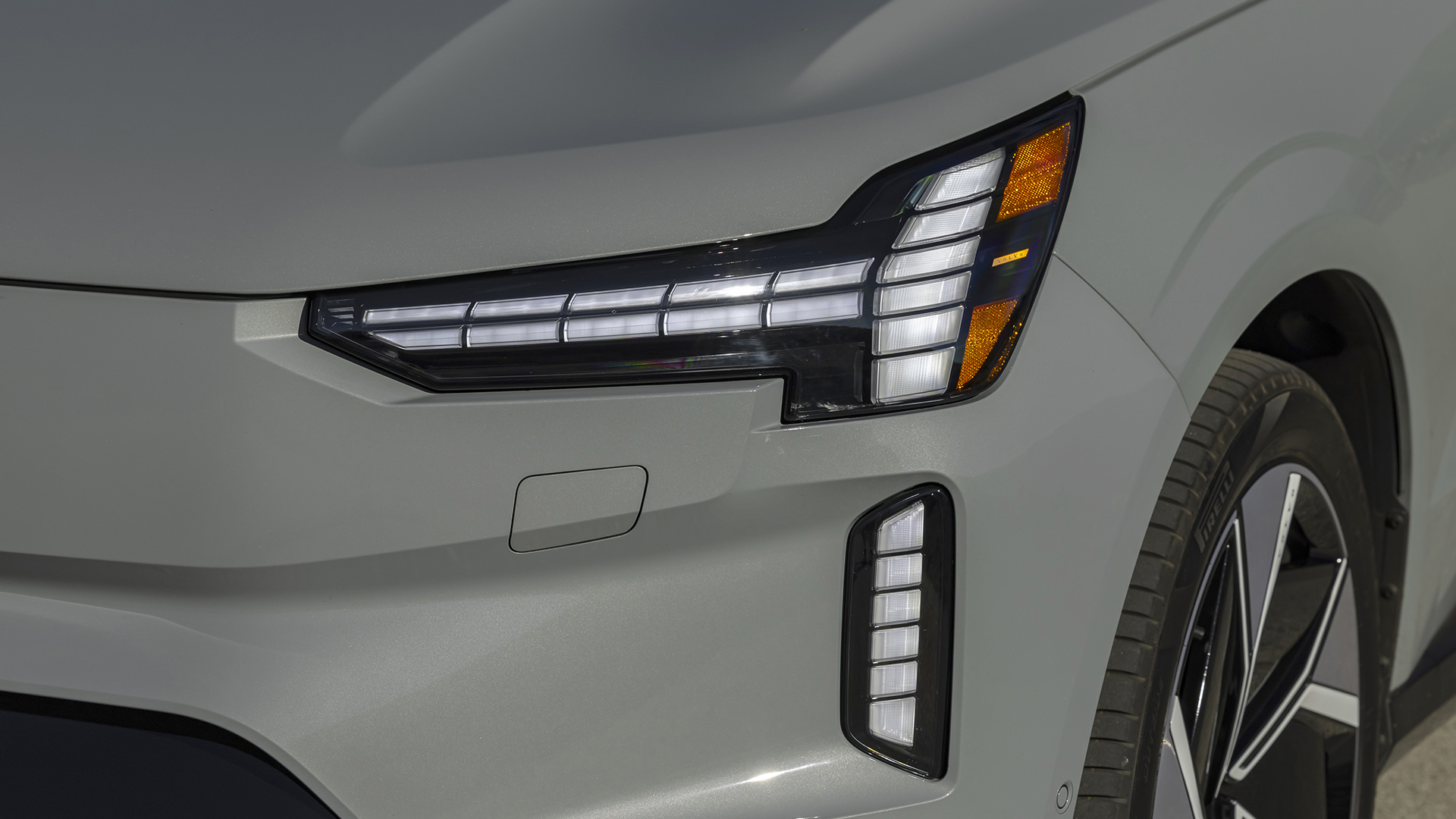
There’s a 360 degree camera view to help with parking too, though the cameras on the wing mirrors here do create a rather strange fish-eye effect that makes it a little hard to judge distance. It would be nicer to see a regular birds eye view of the car without the distortion.
There’s one part to the Volvo EX90’s interior that’s absolutely floorless though, and that’s the audio. This Ultra edition features Bowers & Wilkins premium 3D surround sound audio, complete with 25 speakers and 1610 Watts of power. With Dolby Atmos also supported the sound of this system is simply unrivalled in the car audio market. Crisp, clear and incredibly defined, it is a pleasure listening to in this car.
As if that’s not enough, legendary recording studio Abbey Road has created a special app for the EX90 which allows the Bowers & Wilkins system to simulate different recording styles from its own world famous recording rooms. There’s a range of presets and a slider to change the sound from vintage to modern, big to small and wide to narrow – creating your very own sound. This feature is coming as an over the air update in 2025.
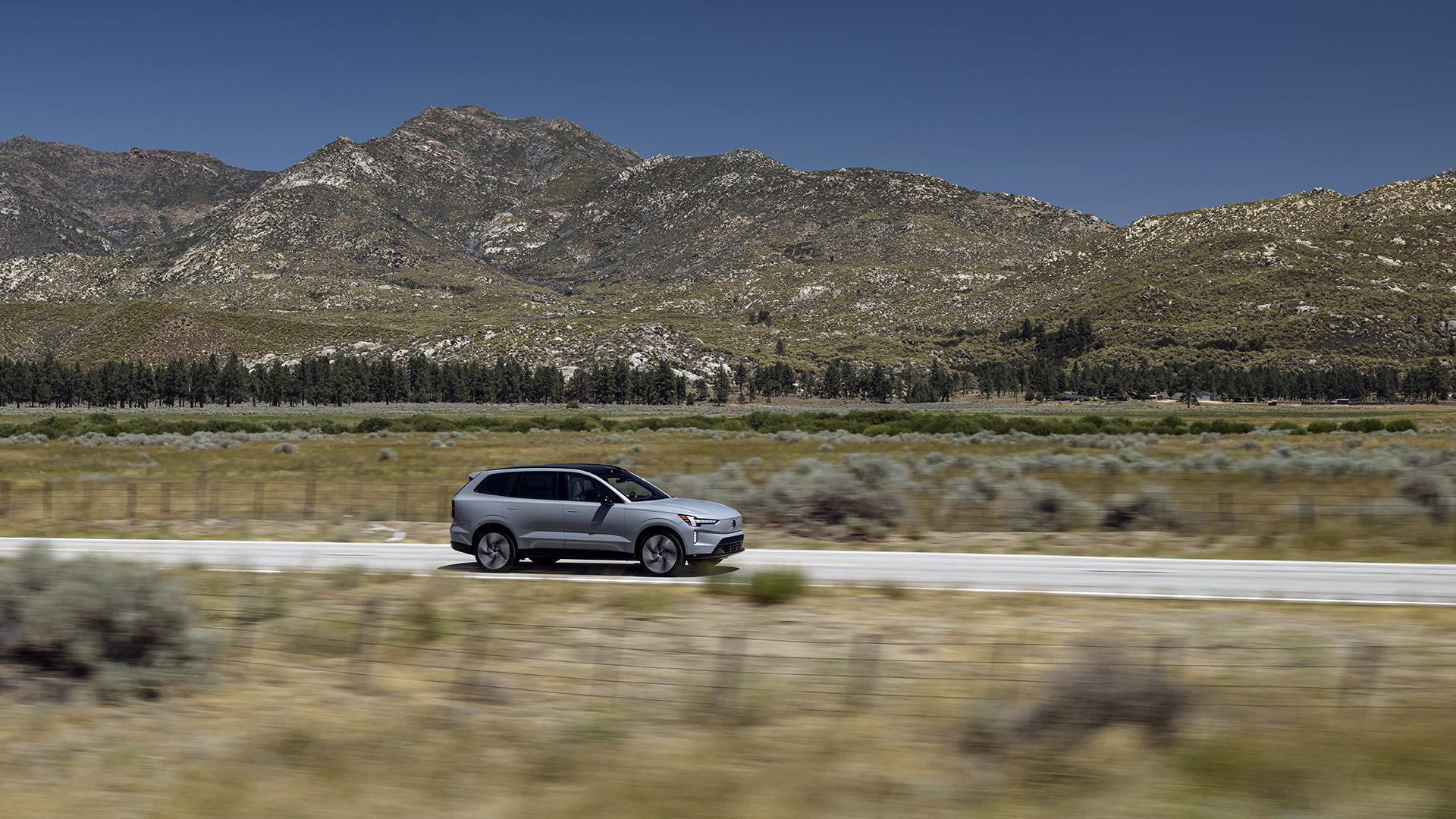
Performance and drive
There are two versions of the Volvo EX90 at the time of launch: the Ultra and the Performance Ultra. Both are twin motor power trains, with the Performance offering 517hp and a 4.9 second 0-62mph acceleration, compared to the Ultra’s 408hp and 5.9 seconds.
Both models are powered by a 111kWh battery and this delivers a range of up to 374 miles. That’s certainly a decent range for a pretty powerful SUV, and puts it about some of the best models on the market. Though just how much of that range you’ll really see if you use the performance mode is to be seen. My second test car of the day was running pretty low on charge by the time I finished my drive, and I’m pretty sure it hadn’t done over 300 miles.
Luckily, with such a large battery, the EX90 also features fast charging, with up to 250kW DC charging to deliver 10 to 80% in around 30 minutes. Of course, most owners will want to charge at home on AC chargers, which can take 15 hours on the faster 32-Amp home chargers.
This is a heavy car, weighing in at around 2.7 tons, though remarkably it handles incredibly well. Throw it around some windy roads and with that small steering wheel it sticks to the road, providing plenty of grunt out of the bend. Even when you slam on the brakes, this doesn’t feel like a lump – the suspension does a great job of holding things in place when it needs to, and then relaxing when it doesn’t.
The dual chamber air suspension actually gives the car two distinct spring settings: either soft or firm, which can be set in the menu. It’s just a shame that this isn’t tied to the performance mode on the screen, and that there’s no way to quickly switch between sporty and comfort drive modes that affect all of the dynamics, or create a custom version.
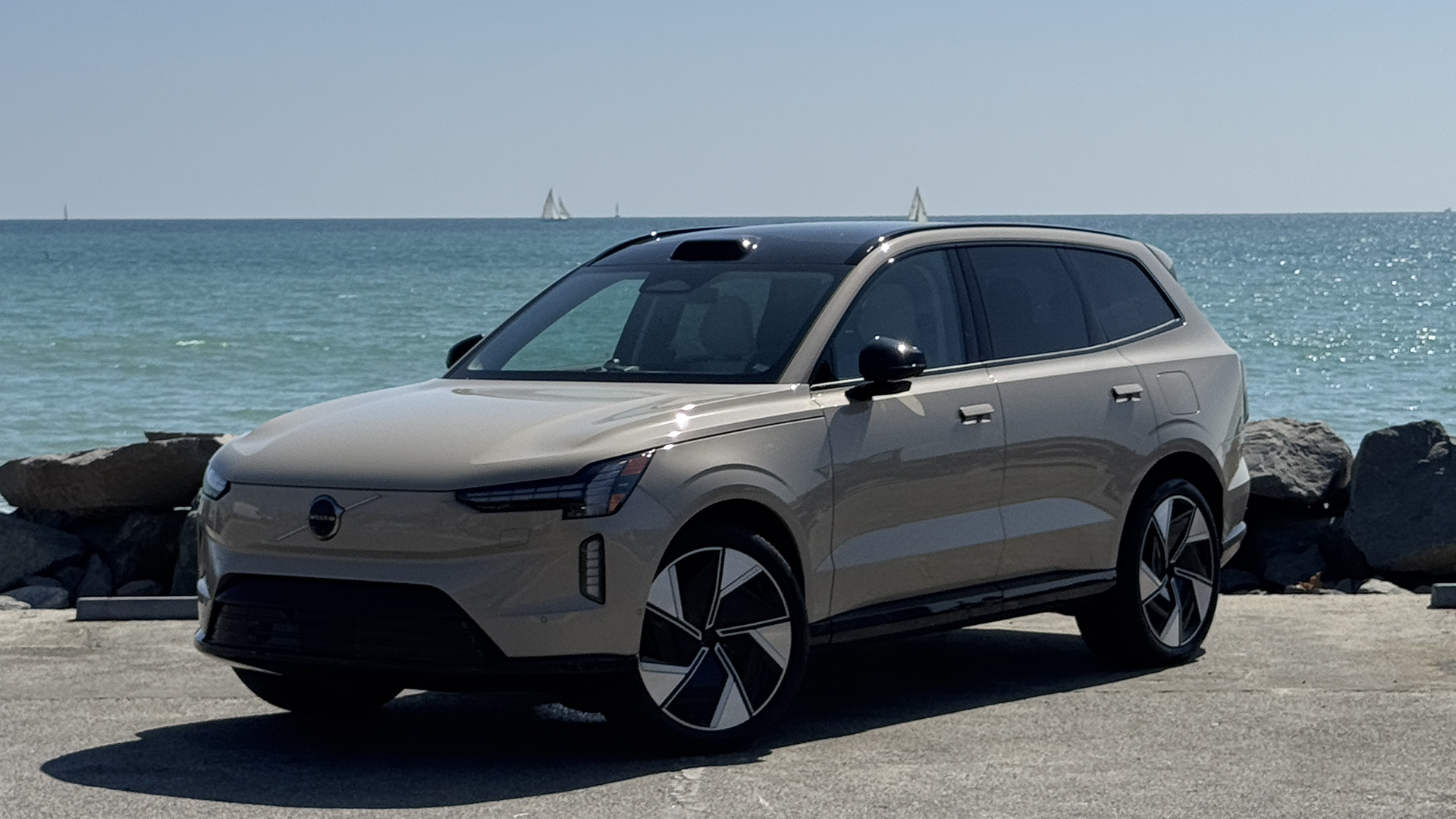
Verdict – should I buy the Volvo EX90?
The premium SUV market certainly isn’t short of options if you have around £100k to play with. The Volvo EX90 certainly holds its own in this market, offering a stylish and extremely high spec solution for the money.
The car is beautifully finished inside and out and it boasts an impressive selection of technology on board, from the LiDar sensors to the Bowers & Wilkins speakers. All of which raise the experience to one that feels worthy of a flagship product.
Additional models will see simpler specs and lower prices, but if you want one of the best all-electric SUVs on the market, the Ultra and Ultra Performance certainly fit the bill.
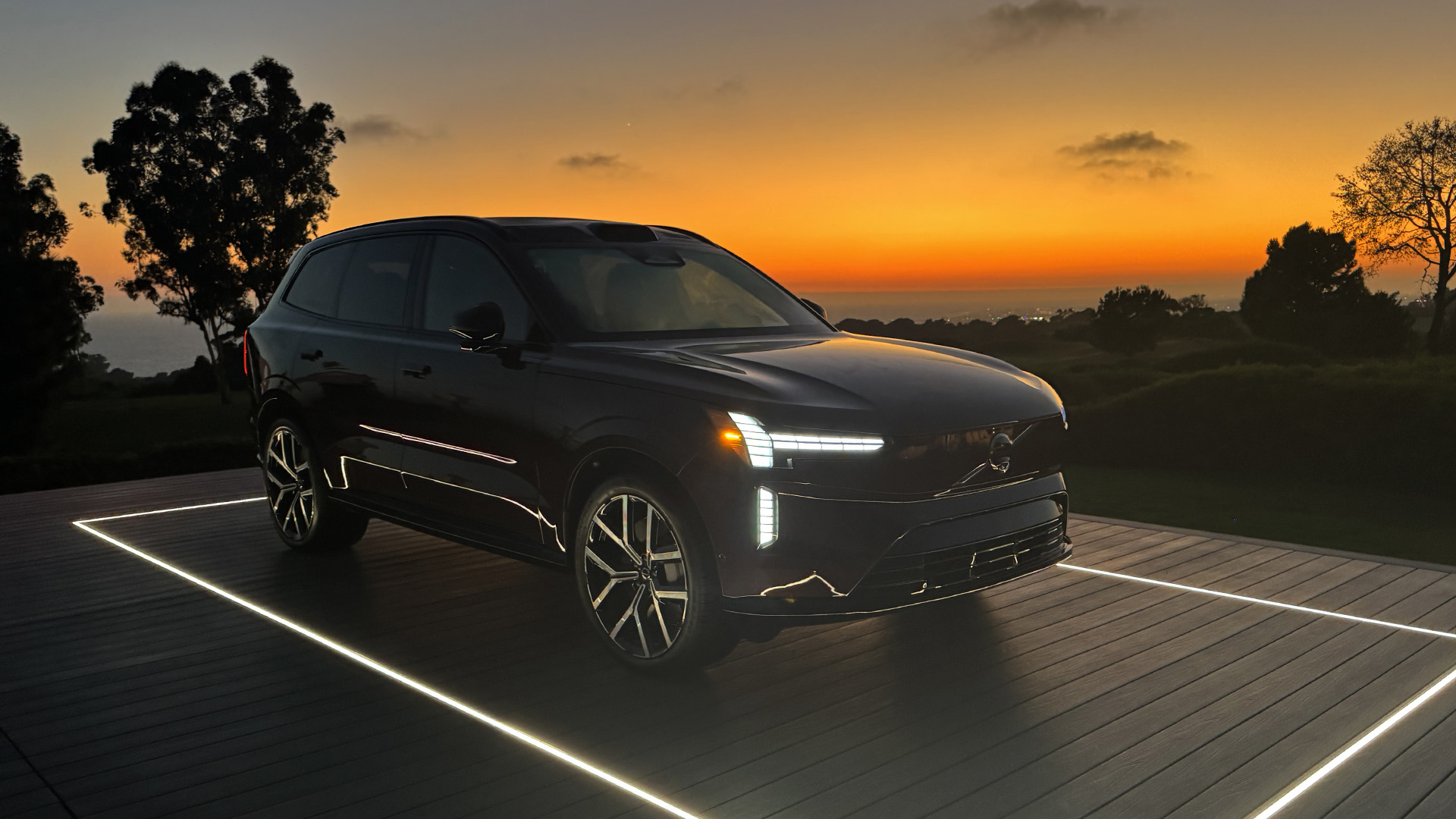

As T3's Editor-in-Chief, Mat Gallagher has his finger on the pulse for the latest advances in technology. He has written about technology since 2003 and after stints in Beijing, Hong Kong and Chicago is now based in the UK. He’s a true lover of gadgets, but especially anything that involves cameras, Apple, electric cars, musical instruments or travel.